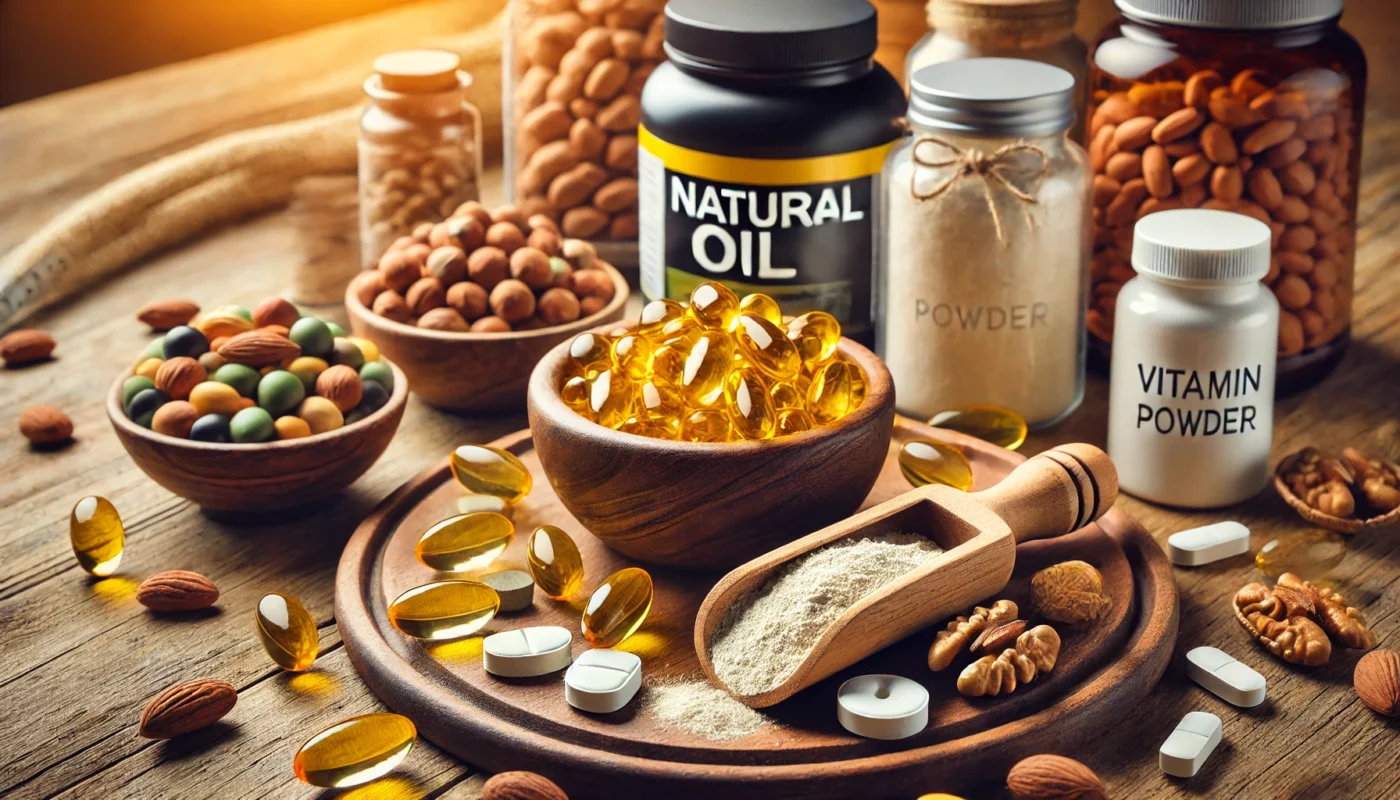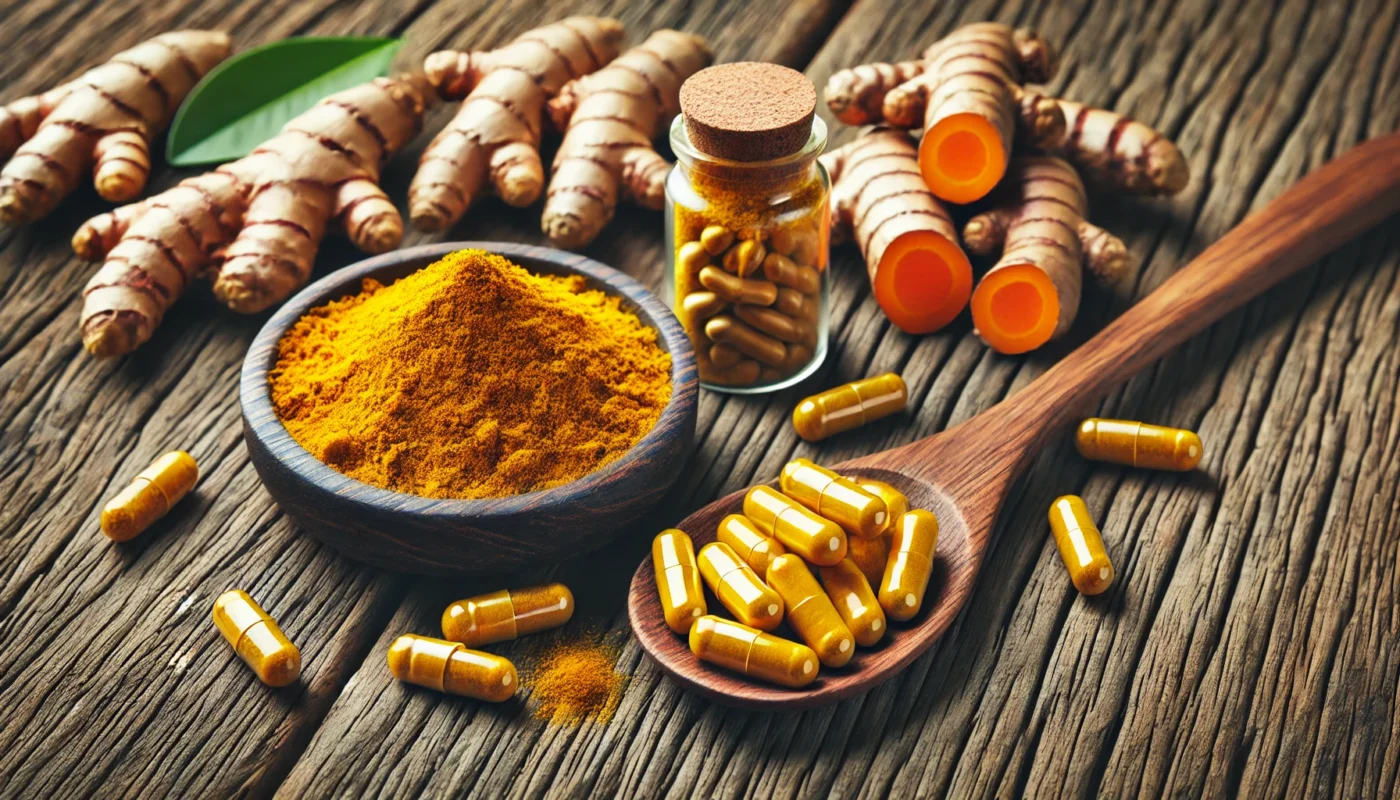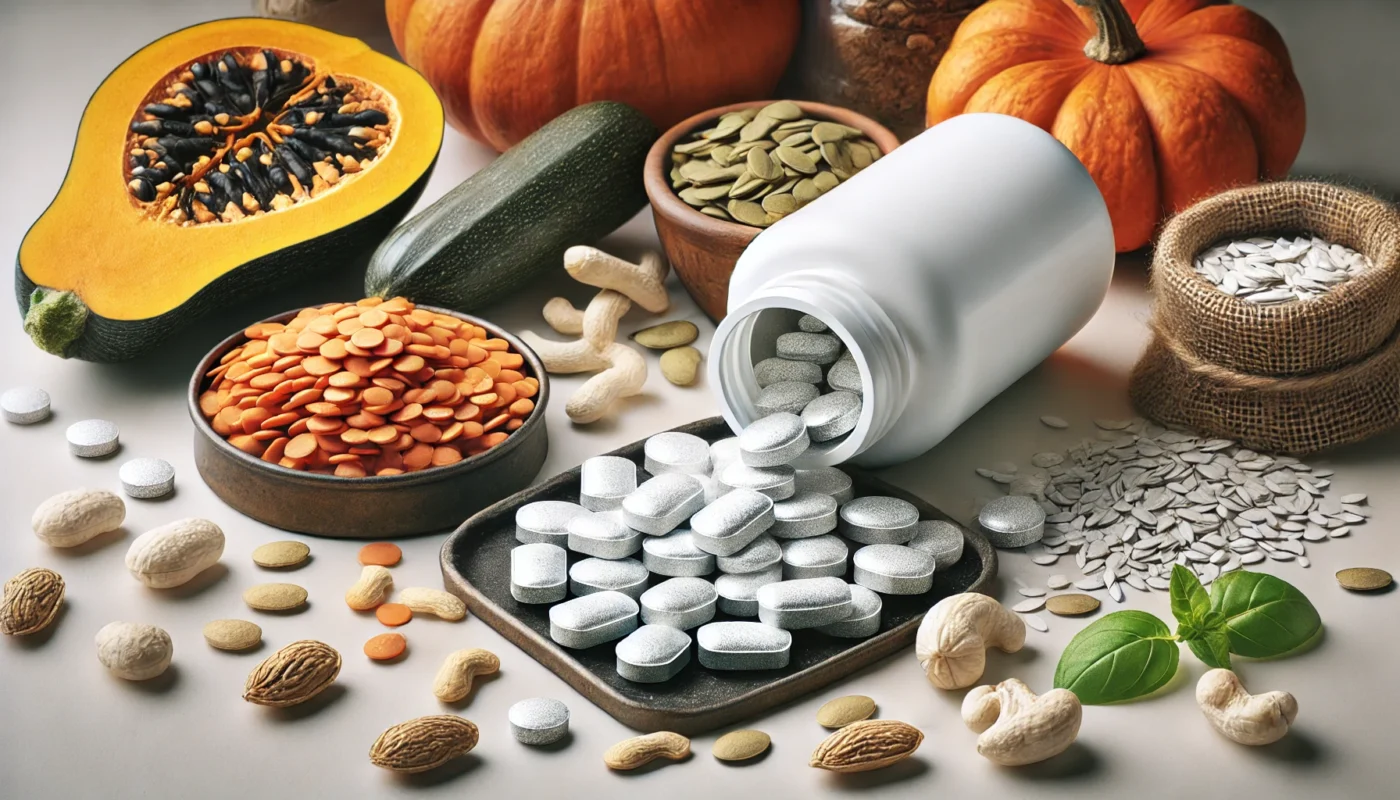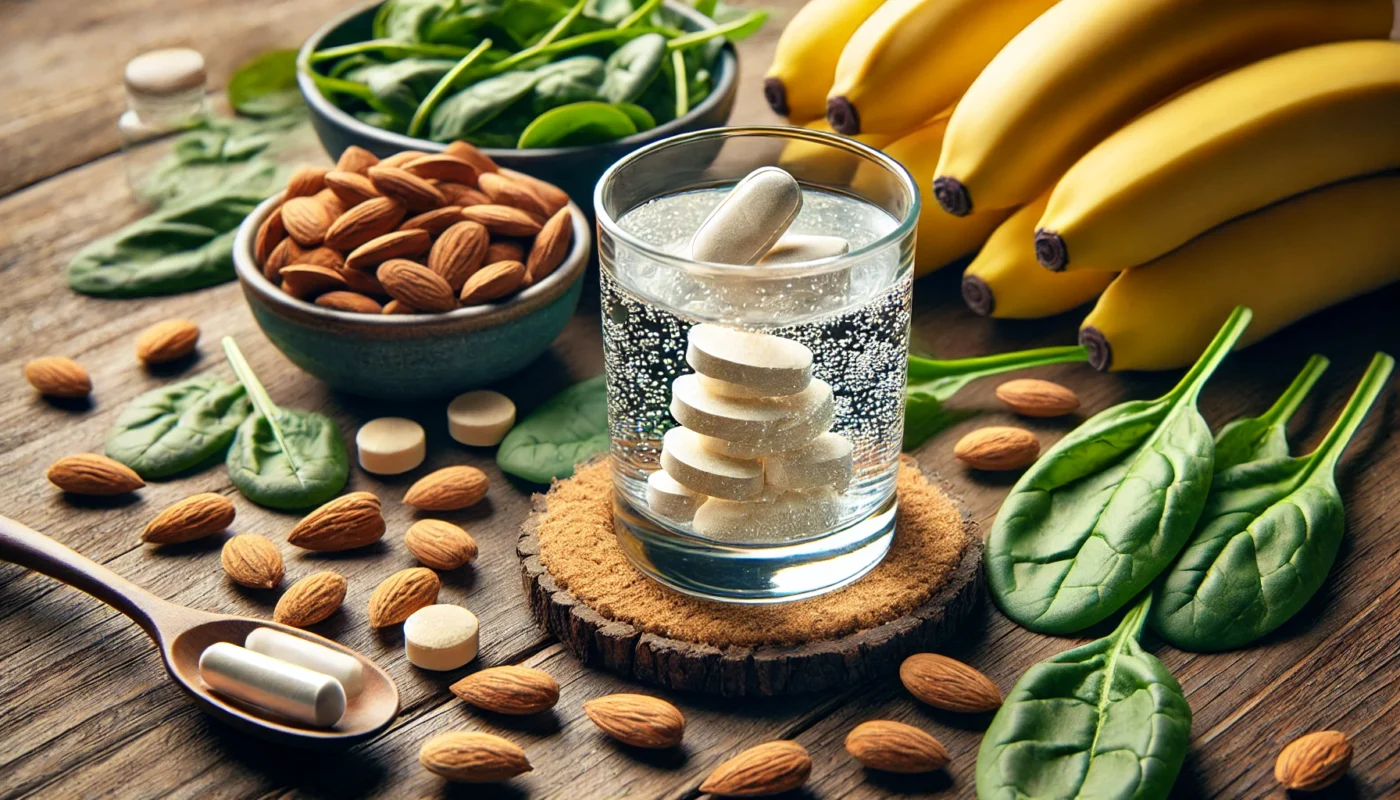Injury recovery is a journey. It’s a process that requires patience, dedication, and the right tools.
One such tool is supplementation.
Supplements can play a crucial role in speeding up injury recovery. They can provide the body with the necessary nutrients to repair damaged tissues, reduce inflammation, and boost overall health.
But understanding which supplements to take can be a challenge.
There’s a vast array of options available, each with its own benefits and considerations. From protein powders to omega-3 fatty acids, from vitamins to herbal remedies, the choices can be overwhelming.
That’s where this guide comes in.
Our aim is to provide you with a comprehensive overview of the top supplements for injury recovery. We’ll delve into the science behind each supplement, explaining how they aid in the healing process.
We’ll also provide practical advice on how to incorporate these supplements into your recovery regimen.
But we won’t stop there.
We’ll also address common misconceptions about supplements and provide important safety considerations. After all, while supplements can be beneficial, they’re not without risks.
Whether you’re a fitness enthusiast dealing with a sports injury, a health enthusiast looking to optimize your recovery process, or a medical patient seeking to manage a health condition, this guide is for you.
So, let’s embark on this journey together. Let’s explore the world of supplements for injury recovery.
Your path to a faster, more effective recovery starts here.
You may also like: Top Supplements to Enhance Bone Healing
Understanding Injury and Recovery
Injuries are an inevitable part of an active lifestyle. Whether it’s a sprain from running, a strain from lifting weights, or a minor fracture, understanding the recovery process is key.
Every injury triggers the body’s natural healing mechanisms. This complex process involves inflammation, repair, and remodeling of tissues. Each stage is critical and interrelated.
Recovery time varies depending on the injury type and severity. It can be influenced by factors such as age, overall health, and even mental state. Understanding these variables is essential for optimizing recovery.
Nutrition plays a pivotal role in recovery. Providing the right nutrients can support tissue repair, reduce inflammation, and improve overall healing outcomes. Supplements can aid in filling gaps that diet alone may not cover.
A holistic approach to recovery integrates physical activity, nutrition, and mental wellbeing. Exercises tailored to the injury type speed up recovery. Mindfulness and mental health support also play a significant role.
Listening to the body is vital during recovery. Recognizing when to rest and when to engage in gentle movement can prevent further injury. Balance is key.
Here are some components to consider during recovery:
- Physical Rest: Allows tissues to heal without additional strain.
- Balanced Nutrition: Provides essential nutrients for cellular repair.
- Mental Health: Supports emotional wellbeing through recovery challenges.
- Hydration: Ensures nutrients are efficiently delivered to cells.
The Body’s Healing Process
The body’s healing process is a symphony of biological events. It begins with the inflammation phase, where the immune system responds to the injury by sending cells to fight infection and clear debris.
Next is the proliferation phase. New cells are produced, and tissues begin to rebuild. Proteins and amino acids are the building blocks for these new cells.
Finally, there’s the remodeling phase. Here, tissues strengthen and regain normal function. Collagen structures are realigned, much like a construction site tidying up after a build.
Understanding these phases helps in appreciating how supplements can aid each stage. Protein, for instance, supports new cell production and omega-3 helps modulate inflammation. Supplements like collagen can fortify the remodeling phase.
During healing, it’s important to be patient and consistent with your care plan. The body works optimally when given time and the right support.
Factors Influencing Recovery
Various factors can influence the pace and success of recovery. Age plays a significant role; younger individuals generally heal faster due to more robust cellular activity and regenerative capacity.
Health condition is another critical factor. Underlying medical issues like diabetes or heart disease can slow recovery and complicate the healing process.
Nutrition is a well-known influencer. A balanced diet rich in vitamins, minerals, and essential fatty acids enhances the body’s ability to repair itself. Deficiencies can delay healing.
The psychological state also impacts recovery speed. Stress management through techniques like meditation and mindfulness can improve healing outcomes. Emotional support from family or support groups can bolster mental resilience.
Lastly, lifestyle choices make a difference. Smoking and excessive alcohol consumption can impair healing. Ensuring adequate sleep, hydration, and gradually reintroducing physical activity contribute positively to recovery.
Being mindful of these factors can guide you in creating a comprehensive recovery plan, tailored to support the body’s healing process.

The Role of Nutrition in Injury Recovery
Nutrition is a cornerstone of the healing process. It provides the necessary tools for the body to repair and rejuvenate itself efficiently. A well-rounded diet, rich in essential nutrients, can dramatically improve recovery outcomes and speed up injury recovery.
Macros—proteins, fats, and carbohydrates—play distinct roles in supporting recovery. They provide energy and assist in tissue repair and inflammation reduction. Micronutrients, such as vitamins and minerals, ensure cells function optimally and bolster the immune response.
Protein is crucial for repairing damaged tissues. Lean meats, beans, and dairy products can help in rebuilding muscle fibers and skin cells. Carbohydrates provide the energy needed for tissue repair and immune responses.
Fat, particularly healthy fats from sources like avocados and nuts, helps in inflammation control. Omega-3 fatty acids are particularly beneficial in this regard, as they reduce inflammatory markers and assist in cell membrane repair.
Macronutrients and Micronutrients: What You Need to Know
Macronutrients are the body’s energy providers. Protein is particularly vital because it supplies the amino acids necessary for tissue construction and repair. Lean meats, fish, eggs, and tofu are excellent sources.
Carbohydrates support the energy demands of the body during recovery. They replenish glycogen stores, keeping fatigue at bay and fueling cellular processes. Whole grains, fruits, and vegetables provide both carbs and vital vitamins.
Fat is not to be overlooked. It is essential for the absorption of fat-soluble vitamins and serves as a structural component of cell membranes. Healthy fats, particularly from sources like nuts and fish, assist anti-inflammatory efforts.
Micronutrients, although needed in smaller quantities, are equally crucial. Vitamins such as C and D, along with minerals like zinc and calcium, help in collagen synthesis and bone strength.
Hydration: The Foundation of Recovery
Hydration plays a pivotal role in recovery, yet is often underestimated. Water is essential for nearly every physiological process, from cellular metabolism to nutrient transport. Staying hydrated ensures your cells can perform these tasks efficiently.
Adequate hydration keeps tissues pliable and resilient. It aids in the delivery of nutrients to damaged areas and helps remove waste products from inflammation. Dehydration can slow these processes, delaying recovery.
Water also facilitates digestion and absorption of essential nutrients. It enables the vitamins and minerals consumed through food to reach the cells that need them most.
To maintain optimal hydration levels, aim for at least eight cups of water daily. Electrolytes, found in sports drinks and foods like bananas, also support hydration by balancing fluids in and out of cells.
Monitoring urine color is an easy gauge of hydration status; pale yellow indicates proper hydration. Including foods with high water content, like fruits and vegetables, can also support hydration efforts.
Paying attention to your body’s hydration needs is a simple yet powerful step towards speeding up recovery and ensuring complete healing.
Key Supplements for Injury Recovery
The journey of healing from an injury is demanding, but supplements can ease the path. They serve as vital aids, speeding up recovery and enhancing the body’s natural processes. Correct supplements, tailored to specific needs, can make a significant difference in recovery timelines.
In this section, we’ll explore some of the most effective supplements for injury recovery. We’ll delve into their roles and benefits, explaining how each can contribute to a swift and smooth healing process.
The supplements we will discuss include protein powders, omega-3 fatty acids, and vitamin C. These have garnered substantial attention for their proven effects on recovery and repair. Each offers unique properties that support and amplify the body’s healing efforts.
Here’s a comprehensive list of key supplements that are essential for injury recovery:
- Protein supplements
- Omega-3 fatty acids
- Vitamin C
- Zinc
- Magnesium
- Curcumin
- Bromelain
- Glucosamine and Chondroitin
- Collagen supplements
- Antioxidants
Protein Supplements: Building Blocks for Repair
Protein is indispensable for tissue repair and muscle building. When injured, the body requires higher amounts of protein to restore damaged tissues. This necessity makes protein supplements a valuable ally in speeding up recovery from injury.
Whey and plant-based protein powders are popular choices among fitness enthusiasts and those recovering from injuries. They offer a convenient and effective way to meet increased protein demands. These supplements provide the essential amino acids needed for repair.
Incorporating protein supplements into a recovery plan can help minimize muscle loss. This is crucial when you’re less active due to an injury. Additionally, protein supports the immune system, aiding the body in combating potential infections during recovery.
When choosing a protein supplement, consider factors such as dietary preferences, allergies, and specific protein needs. A variety of supplements are available, ranging from whey protein to soy and pea proteins. Selecting the right one ensures both efficacy and compliance with personal nutritional requirements.
Omega-3 Fatty Acids: Anti-Inflammatory Powerhouses
Omega-3 fatty acids stand out for their potent anti-inflammatory effects. Inflammation is a natural response to injury, but excessive inflammation can prolong recovery. Omega-3s help to modulate this response, promoting quicker healing.
These essential fats are found in fish oil supplements, which are renowned for their high omega-3 content. Regular intake can decrease the production of inflammatory molecules, reducing swelling and pain. This contributes to a more comfortable and speedy recovery process.
Omega-3s also play a role in maintaining joint health, which is particularly beneficial in injury scenarios. They help ensure mobility and prevent stiffness, a common concern when recovering from bone or joint injuries.
Apart from supplements, omega-3s can be found in foods such as salmon, flaxseeds, and walnuts. Incorporating both dietary sources and supplements can provide comprehensive support for the body’s healing processes.
Vitamin C: Essential for Collagen Formation
Vitamin C is a powerhouse when it comes to injury recovery. It plays a crucial role in collagen synthesis, an essential protein for skin, tendon, ligament, and blood vessel repair. Collagen strength depends heavily on the presence of adequate vitamin C levels.
This vitamin also enhances the immune system, helping to fend off infections that can complicate recovery. As an antioxidant, vitamin C protects cells from damage caused by free radicals during the healing process.
Supplementation with vitamin C can ensure that the body has enough to meet its increased demands. When recovering from injuries, the body’s need for collagen-building compounds goes up, making vitamin C supplementation beneficial.
Vitamin C supplements are readily available and come in various forms, including tablets, capsules, and powders. Natural sources, like citrus fruits, berries, and leafy greens, should also form part of your intake. Combining supplements with dietary sources can optimize recovery efforts.
As always, consult healthcare professionals to determine the appropriate dosage, particularly if you have specific health conditions. Balancing supplementation with a healthy diet supports both immediate recovery and long-term health.

Minerals and Their Impact on Healing
Minerals are fundamental to the body’s healing process. They are crucial players in various physiological functions, including enzyme activities and immune support. The demand for specific minerals increases when recovering from injuries. Meeting these demands can significantly enhance recovery.
These minerals help rebuild bone, cartilage, and other tissues. Additionally, they combat oxidative stress, a common byproduct of injury. By supporting cellular functions, minerals contribute to reducing recovery time and improving healing quality.
Among the essential minerals for injury recovery are zinc and magnesium. Each offers distinct properties that aid in restoring health and function. Ensuring adequate intake of these minerals can make a marked difference in the recovery process.
Here is a list of essential minerals for injury healing:
- Zinc
- Magnesium
- Calcium
- Iron
- Copper
- Selenium
Zinc: Supporting Immune Function and Wound Healing
Zinc is indispensable for effective wound healing. It plays a pivotal role in collagen synthesis, cell proliferation, and immune function. Adequate zinc levels help expedite the body’s natural repair mechanisms, supporting faster recovery.
This mineral acts as a cofactor for over 300 enzymes, many of which are involved in maintaining skin integrity and immunity. By facilitating these enzyme functions, zinc promotes tissue growth and repair, essential for healing wounds and injuries.
Inadequate zinc can lead to delayed wound healing and weakened immunity. This scenario underscores the importance of ensuring enough zinc in your diet or through supplementation. Foods rich in zinc include meat, shellfish, legumes, and seeds.
Supplements can provide a reliable source of zinc, especially for those with increased needs or dietary limitations. Always consult a healthcare provider to determine the right dosage, as excessive zinc can interfere with the absorption of other minerals, such as copper.
Magnesium: Muscle Function and Recovery
Magnesium is essential for muscle health and recovery. It plays a crucial role in muscle contractions and nerve functions, both of which are vital during the recovery phase. Magnesium can help reduce muscle cramps, stiffness, and pain associated with injuries.
This mineral aids in energy production and protein synthesis. These processes are critical during recovery, as they support muscle repair and new tissue formation. Furthermore, magnesium helps modulate inflammation, aiding the body’s healing response.
Ensuring adequate magnesium intake can ease muscle soreness and promote relaxation. This supports overall recovery, allowing faster return to normal activity levels. Natural sources of magnesium include nuts, seeds, whole grains, and leafy green vegetables.
Magnesium supplements are available in various forms, such as magnesium citrate or magnesium oxide. Selecting the right type depends on individual needs and absorption rates. Consulting a healthcare professional can guide effective and safe supplementation for optimal recovery outcomes.
Herbal and Natural Supplements for Recovery
Natural supplements have gained popularity for their potential benefits in recovery. These alternatives often provide supportive compounds with fewer side effects. They complement traditional treatments, offering a holistic approach to healing.
While some natural remedies directly target inflammation, others enhance overall health. This approach can result in improved outcomes during recovery. The key is to understand which supplements best address specific needs.
Effectiveness can vary based on the individual’s condition and overall health. Consulting with a healthcare provider can personalize natural supplementation plans. This ensures safety and maximizes therapeutic potential.
Here’s a list of herbal and natural supplements often used in recovery:
- Curcumin
- Bromelain
- Arnica
- Comfrey
- Ginger
- Garlic
Curcumin: The Natural Anti-Inflammatory
Curcumin, found in turmeric, is renowned for its anti-inflammatory properties. It helps reduce swelling, a common issue during recovery. By inhibiting inflammatory pathways, curcumin can alleviate pain and promote healing.
Beyond its anti-inflammatory effects, curcumin acts as an antioxidant. It protects cells from damage caused by oxidative stress. This dual action can accelerate the recovery process by addressing two major challenges simultaneously.
Despite its benefits, curcumin has low bioavailability. Combining it with piperine, found in black pepper, enhances absorption. This combination can be found in many curcumin supplements, offering a practical solution to this challenge.
Regular intake of curcumin can support joint health and mobility. However, it’s crucial to consult with a professional before starting supplementation, particularly if taking medications that interact with curcumin.
Bromelain: Reducing Swelling and Pain
Bromelain, an enzyme from pineapple, offers natural support for inflammation and pain. It assists in breaking down proteins, which can reduce tissue swelling and bruising. This makes it a valuable addition to injury recovery protocols.
The anti-inflammatory actions of bromelain can help decrease the need for conventional painkillers. By modulating the body’s response to injury, it can also facilitate faster return to regular activities.
Besides its physical benefits, bromelain may assist in improving digestion. This can enhance nutrient absorption, supporting overall health during recovery. Effective digestion is essential, as it ensures the body receives the full benefit of a recovery-focused diet.
While generally safe, bromelain can interact with certain medications. If you’re considering using bromelain, speaking with a healthcare provider is wise. They can help determine the right dosage and identify any potential interactions.
Other Herbal Remedies and Their Benefits
Several other herbs provide support during recovery, each with unique properties. Arnica, for instance, is often used topically to reduce pain and bruising. It can complement oral supplements, providing localized relief after an injury.
Comfrey has a history of use for wound healing due to its allantoin content. It can promote cell regeneration, making it beneficial for skin and tissue repair. However, it should be used cautiously due to potential toxicity if ingested.
Ginger and garlic are also valuable in a recovery regimen. Ginger offers anti-inflammatory benefits, similar to curcumin, while garlic supports the immune system. Both can be easily incorporated into meals, enhancing flavor and nutrition.
As with any supplement, it is important to use herbal remedies responsibly. Always seek professional guidance when incorporating these into your recovery plan. This ensures their safe and effective use alongside other treatments.

Joint-Specific Supplements
For those dealing with joint injuries, specific supplements can offer much-needed relief and support. Injuries impacting joints can be particularly challenging, often leading to prolonged discomfort and limited mobility.
Joint-specific supplements aim to address the unique needs of connective tissues. They often focus on promoting cartilage repair, reducing inflammation, and enhancing lubrication within joints.
Glucosamine and chondroitin are among the most studied joint supplements. Both have shown potential in supporting cartilage health and reducing symptoms of joint degeneration.
Another popular supplement is collagen. This protein is integral to many tissues in the body, including those around joints. Ingesting collagen may help fortify joint structure and resilience.
Consistent use of these supplements might lead to noticeable improvements in joint function. However, results can vary depending on factors such as age, overall health, and severity of injury.
It’s crucial to maintain a balanced approach. Combining supplements with physical therapy and exercise can yield better results. This multifaceted approach ensures comprehensive support for the healing process.
When selecting joint supplements, quality matters. Opting for products with verified testing and minimal additives is key. This ensures the purity and potency of active ingredients.
Glucosamine and Chondroitin: Joint Health Allies
Glucosamine is a compound naturally found in cartilage, the tough tissue cushioning joints. Supplementing with glucosamine can stimulate cartilage cells, encouraging repair and growth. It’s often used to manage conditions like osteoarthritis.
Chondroitin, on the other hand, is a major component of cartilage that helps maintain its elasticity. It can inhibit enzymes that break down cartilage, offering protective benefits. This dual action makes it a potent partner for glucosamine.
Studies suggest that these supplements may alleviate joint pain and improve function over time. This makes them a popular choice for those with chronic joint conditions or recovering from joint injuries.
Not all studies agree on their effectiveness, but many individuals report relief. Consistency in taking these supplements seems to correlate with better outcomes. Therefore, a regular regimen is often recommended for optimal benefits.
Collagen Supplements: Do They Help?
Collagen forms the basis of skin, tendons, and ligaments, crucial for joint health. Supplementing with collagen peptides can support the integrity and elasticity of these tissues. It can be particularly beneficial for those recovering from connective tissue injuries.
The effectiveness of collagen supplements lies in their ability to stimulate the body’s own collagen production. This process helps reinforce the structural components of joints, potentially reducing discomfort and improving mobility.
Research suggests that hydrolyzed collagen, which is easier for the body to absorb, might be most effective. By improving collagen levels, these supplements may also enhance bone strength.
Despite promising results, collagen supplements are not a cure-all. They work best when used in conjunction with balanced nutrition and targeted exercises. Maintaining overall joint health requires a comprehensive approach, not just supplementation.
Antioxidants and Recovery
Antioxidants play a crucial role in the body’s recovery mechanisms by combating oxidative stress. Oxidative stress occurs when there is an imbalance between free radicals and antioxidants in the body. This imbalance can lead to cell damage, which impedes recovery.
Understanding how antioxidants work can help you harness their benefits more effectively. By neutralizing free radicals, antioxidants prevent the cascade of damage these rogue molecules can cause. This process not only aids in recovery but also helps maintain overall cellular health.
A diet rich in antioxidants supports the healing process post-injury. Foods and supplements high in antioxidants can enhance the body’s ability to repair tissues and reduce inflammation. These benefits make antioxidants a staple for those recovering from injury.
Incorporating a variety of antioxidants ensures broader protection and support. Different antioxidants target different types of free radicals, providing a comprehensive defense system. This diversity helps optimize recovery by addressing multiple pathways of potential damage.
The Role of Antioxidants in Reducing Oxidative Stress
Oxidative stress can hinder the healing process following an injury. It increases inflammation and slows down cell regeneration. Antioxidants help mitigate these effects by neutralizing free radicals. These small molecules have the potential to cause extensive harm to cells and tissues.
By countering oxidative stress, antioxidants help in maintaining cellular function and integrity. This assistance is crucial, as healthy cells are essential for effective recovery. Antioxidants further promote a healthy inflammatory response, which is critical for healing.
During injury recovery, the body’s demand for antioxidants increases. This is due to the heightened production of free radicals in response to stress and trauma. Supplementation can be beneficial, providing the body with the resources needed to combat oxidative stress effectively.
Antioxidants not only aid in physical recovery but can also enhance mental resilience. When the body is less inflamed, cognitive clarity and mood can improve. These aspects make antioxidants indispensable for holistic recovery.
Specific Antioxidants and Their Sources
A diverse range of antioxidants offers broad benefits for recovery. Each type provides unique protective effects, helping to shield various components of cells from damage.
Vitamin C is a powerful antioxidant that supports collagen formation, crucial for tissue repair. Found in citrus fruits and leafy greens, it’s a key player in the recovery diet.
Vitamin E offers protection to cell membranes against oxidative damage. Nuts, seeds, and spinach are rich sources of vitamin E, making them excellent dietary additions during recovery.
Polyphenols, such as those found in green tea, possess strong anti-inflammatory properties. They not only lower oxidative stress but also promote circulation, which is vital for healing.
Carotenoids like beta-carotene, which convert to vitamin A in the body, support immune function and reduce oxidative damage. They are plentiful in carrots and sweet potatoes, serving as a visual marker for these vital compounds.
Incorporating a mix of these antioxidants can provide comprehensive support for the recovery process. A varied diet ensuring intake from all these sources can optimize healing outcomes.

Practical Tips for Supplementing During Recovery
Navigating the world of supplements can be challenging, especially when recovering from an injury. To ensure effectiveness, it’s important to integrate the right supplements strategically. Start by identifying the key nutrients needed for your specific type of injury, as each has unique needs.
A step-by-step approach can simplify the supplementation process. Begin by prioritizing foundational nutrients like protein, which supports muscle repair, and Omega-3 fatty acids for inflammation reduction. Build from there by addressing specific deficiencies.
Consider keeping a supplement journal to track what you’re taking, along with any noticeable effects. This practice helps in identifying which supplements are truly beneficial. Noting down your symptoms and progress can provide valuable insights.
Timing is another critical factor. Some supplements work best when taken with meals, while others might require an empty stomach. Understanding these nuances can maximize the absorption and efficacy of each supplement.
Consistency is key in a supplementation regimen. Taking supplements sporadically won’t provide the same benefits as a regular schedule. Establish a routine that integrates supplement intake seamlessly into your daily habits.
Stay informed about the latest research on supplements that pertain to your recovery. New studies can provide insights into emerging nutrients or refining existing practices. Being knowledgeable empowers you to make informed decisions.
A mindful approach to supplementation combines well with other recovery methods. Whether it’s physical therapy, rest, or specific exercises, look for ways supplements can support these efforts synergistically. This integration can enhance overall recovery outcomes.
To optimize your routine, consider the following:
- Review your dietary intake to avoid over-supplementing.
- Monitor how supplements interact with any ongoing medications.
- Adjust dosages according to recovery progress and advice from health professionals.
How to Integrate Supplements into Your Recovery Plan
Start by assessing your current diet and identifying any nutritional gaps. This step is crucial because supplements are intended to fill these gaps, not replace whole foods. Consider performing a dietary analysis to pinpoint missing elements.
Consult with a dietitian or nutritionist for personalized advice. They can help tailor a supplement plan based on your specific needs and recovery goals. Their expertise ensures that you’re addressing deficiencies appropriately without over-reliance on supplements.
Implement supplements gradually into your routine. Introduce one new supplement at a time and monitor its effects. This approach allows you to identify any adverse reactions or incompatibilities early on.
Align your supplement intake with your daily routine. Whether it’s pairing fish oil with breakfast or taking magnesium before bed, incorporating them into existing habits can enhance consistency. This strategy reduces the chances of missed doses.
Safety Considerations and When to Consult a Professional
Safety should always be a priority when incorporating supplements into your recovery plan. Begin with recommended dosages and avoid the temptation to exceed them in hopes of faster results. Over-supplementation can lead to negative health effects.
Understand the potential interactions between supplements and any medications you’re taking. For instance, certain supplements can alter the effectiveness of prescription medications. It’s wise to review these interactions with a healthcare provider.
Keep an eye out for any side effects that may arise. Common symptoms might include digestive issues or changes in energy levels. If you experience adverse reactions, discontinue use and consult a healthcare professional.
Consulting a healthcare professional before starting any new supplement is crucial. This guidance is especially important for those with pre-existing health conditions or who are pregnant or nursing. Professionals can provide personalized advice that considers all aspects of your health.
Regular check-ins with your healthcare provider can also help track recovery progress. They can adjust your supplement regimen based on how well you are healing. This adaptive approach ensures that your supplement strategy remains effective and relevant.
The Holistic Approach to Injury Recovery
A holistic approach to injury recovery emphasizes addressing both physical and mental aspects. This method acknowledges the body as an integrated system, where every part works in synergy. It’s not just about healing the wound but promoting overall wellness.
Incorporating various strategies alongside supplements can enhance recovery. Combining traditional methods with modern techniques can create a more comprehensive recovery plan. This approach often involves collaboration among different health disciplines.
Diet plays a crucial role in holistic recovery. A nutrient-rich diet supports the body’s healing process and complements the use of supplements. Whole foods provide essential nutrients that may not be fully available through supplements alone.
Physical activity, tailored to one’s condition, is another crucial aspect. Gentle exercises, when approved by a healthcare professional, can aid in maintaining muscle strength and flexibility. Complementing physical therapy with specific nutrients can help reach recovery goals faster.
Recovery is also about balance, including adequate rest and sleep. These factors are often underestimated but are vital for energy restoration and tissue repair. Prioritizing quality sleep can significantly impact healing outcomes.
Engaging in mindfulness practices and stress management techniques can positively influence recovery. Techniques such as meditation or deep breathing exercises can alleviate stress, which might otherwise impede healing. A calm mind supports a healing body.
A list of holistic elements to consider includes:
- Balanced and nutrient-dense diet
- Physical therapy and appropriate exercises
- Stress-reduction techniques
- Adequate rest and quality sleep
- Community and social support
In essence, recovery is not a one-size-fits-all process. It requires a personalized plan that addresses the unique needs of an individual. Adopting a comprehensive approach can improve both physical health and overall well-being.
Combining Supplements with Other Recovery Methods
Supplements are most beneficial when paired with other recovery strategies. This combination ensures a comprehensive approach to healing, where each method supports the other. Understanding how supplements work in conjunction with other therapies can optimize recovery.
Physical therapy is a cornerstone of many recovery plans. When combined with protein and amino acid supplements, it can significantly enhance muscle repair. These nutrients supply the building blocks necessary to rebuild tissue during therapy.
Nutrition and hydration should not be neglected. Proper intake of fluids and anti-inflammatory foods can work synergistically with supplements like Omega-3 fatty acids. This combination helps reduce inflammation, accelerating the healing process.
It’s also important to incorporate gentle exercises or activities approved by a healthcare professional. Supplements that support joint health, like glucosamine, can be particularly helpful. They can make physical activity more manageable and effective.
The Importance of Mental Health and Support Systems
Mental health plays a crucial role in the body’s ability to recover. A positive mindset can significantly influence recovery outcomes, reducing the perception of pain and enhancing motivation. Mental well-being is integral to holistic injury recovery.
Stress can be detrimental to healing, slowing down the body’s processes. Incorporating stress management techniques like meditation or yoga can complement physical recovery strategies. These practices help in maintaining a calm and focused mindset.
Support systems are invaluable during recovery. Family, friends, and community can provide the encouragement needed to stay committed to recovery goals. Emotional support can improve adherence to prescribed therapies and supplement routines.
Involving mental health professionals in the recovery process can also be beneficial. They provide strategies to cope with the emotional challenges that injuries often bring. This can aid in fostering resilience and a proactive recovery mindset.
In conclusion, recovery extends beyond physical repair and involves mental and emotional healing. A supportive environment, combined with appropriate supplements and therapies, facilitates a well-rounded recovery journey.

Conclusion: Personalizing Your Recovery Journey
Personalizing your recovery journey is crucial for achieving the best outcomes. Each injury and individual is unique, requiring a tailored approach. Taking the time to understand your body’s specific needs can significantly enhance the healing process.
Start by evaluating your lifestyle and health status. Consider factors like diet, exercise routines, and stress levels. This holistic view allows you to choose the most appropriate supplements and strategies for your recovery.
Consultation with healthcare professionals can provide insights tailored to your circumstances. They can guide you in selecting supplements and therapies best suited for your condition. Professional advice ensures your recovery plan is both safe and effective.
As you personalize your journey, remain open to adjustments. Flexibility allows for changes in your routine as your recovery progresses. By continually assessing your needs, you can optimize strategies to support lasting healing and health.
Monitoring Progress and Adjusting Your Approach
Regularly monitoring your progress is essential for a successful recovery. Keep track of improvements, any setbacks, and how your body responds to the chosen supplements and treatments. This vigilance enables timely modifications to your plan.
Be prepared to adjust your approach based on these observations. Flexibility in your recovery strategy is key to overcoming obstacles efficiently. By responding to your body’s cues, you ensure ongoing support for your healing journey.
The Future of Recovery: Trends and Innovations
The future of recovery is promising, with exciting trends and innovations on the horizon. Advances in supplement formulations and delivery methods are improving their effectiveness and accessibility. These developments offer new options for personalizing recovery strategies.
Emerging technologies, like wearable devices, are providing real-time data on recovery progress. This innovation enables a more precise adjustment of supplement dosages and exercise routines. Such tools empower individuals to take an active role in their healing process.
Staying informed about these trends ensures you remain at the forefront of recovery strategies. Embracing new innovations can further enhance your personalized approach, leading to faster and more effective healing.
Further Reading:
HIDEF Physical Therapy: Dietitian approved: The Top 5 Supplements for Injury Recovery
Stanford Lifestyle Medicine: Supplements for Elite Athletic Recovery
Corner Chiropractic Center: 4 Nutrients That Help Speed Healing After an Injury
Balanced diet, recovery strategies, physical therapy, mental health, supplements, stress management, community support, personalized recovery, hydration, inflammation reduction, exercise, joint health, emotional healing, monitoring progress, wearable technology, healing innovations
Important Note: The information contained in this article is for general informational purposes only, and should not be construed as health or medical advice, nor is it intended to diagnose, prevent, treat, or cure any disease or health condition. Before embarking on any diet, fitness regimen, or program of nutritional supplementation, it is advisable to consult your healthcare professional in order to determine its safety and probable efficacy in terms of your individual state of health.
Regarding Nutritional Supplements Or Other Non-Prescription Health Products: If any nutritional supplements or other non-prescription health products are mentioned in the foregoing article, any claims or statements made about them have not been evaluated by the U.S. Food and Drug Administration, and such nutritional supplements or other health products are not intended to diagnose, treat, cure, or prevent any disease.

